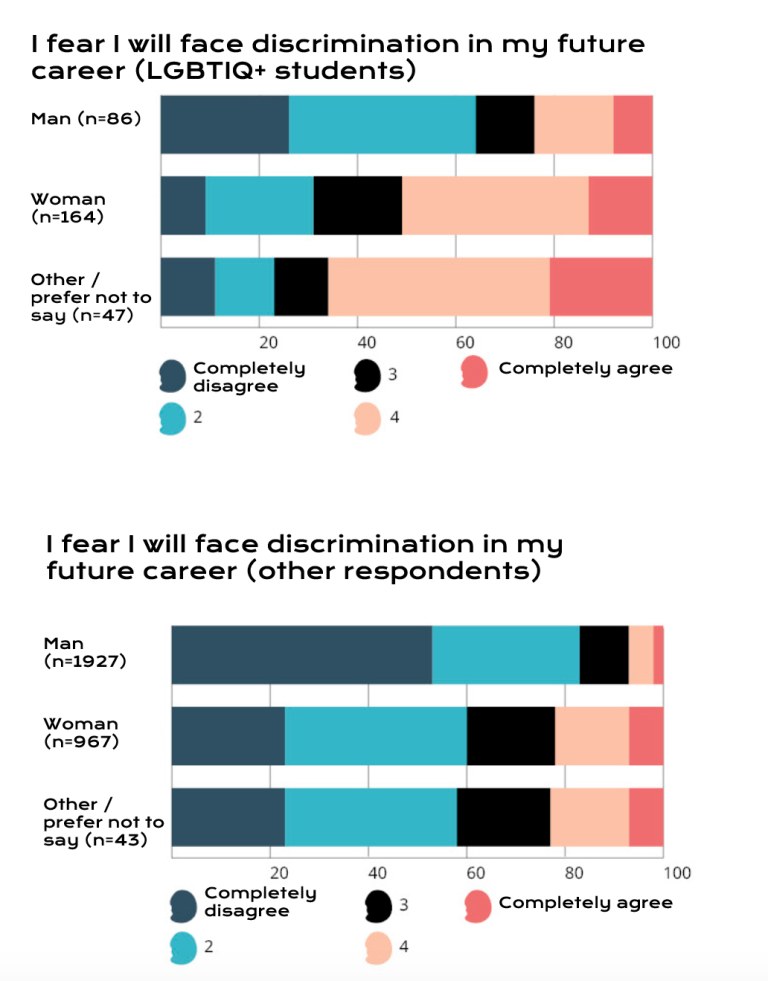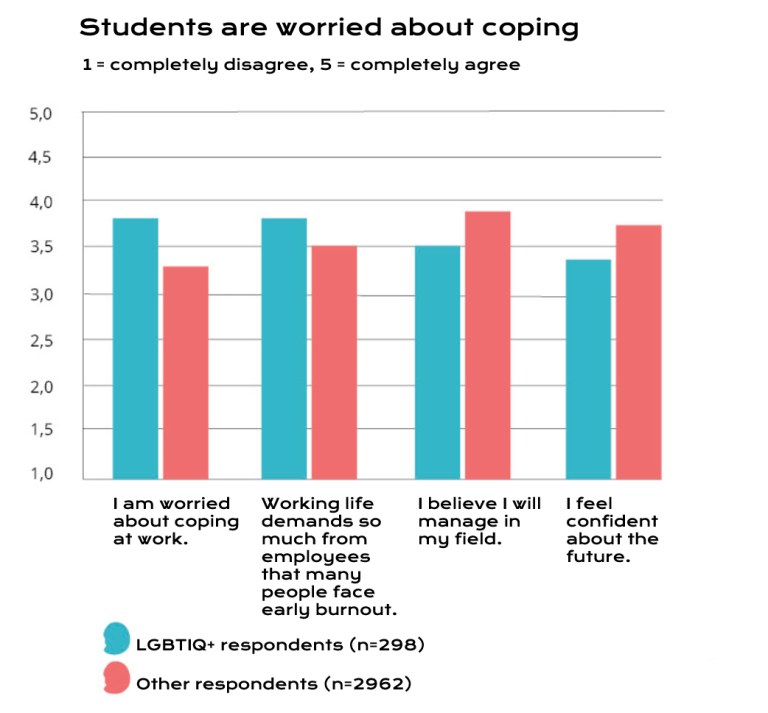
Of the LGBTIQ+ students,
- 68% are concerned about their ability to cope at work
- 46% fear they will face discrimination in their career.
Of the rest of the respondents, 42 percent are concerned about their ability to cope at work, and 12 percent fear discrimination in their career. The differences in the figures are significant when comparing LGBTIQ+ students, i.e. students who belong to sexual and/or gender minorities, and other students.

Fear they will face discrimination in their career:
- 24% of LGBTIQ+ men
- 51% of LGBTIQ+ women
- 7% of non-minority men
- 22% of non-minority women
There are major differences between genders in terms of whether the student fears they will face discrimination in their career or not. LGBTIQ+ students who reported their gender as “other” or “prefer not to say” feared discrimination the most. Of them, no less than 66 percent experienced fear.
Nearly one in four LGBTIQ+ students had experienced harassment or mistreatment while working in their own field. The share of, for example, non-minority women who said the same was 18 percent, and men, 4 percent.

When it comes to the most important elements of their career, LGBTIQ+ students have more or less the same priorities as other students of technology. Having an interesting job was considered the most important element, while finding a balance between work and other life came second.
However, the ability to cope and manage work demands is more of a concern for students belonging to sexual and/or gender minorities than students who do not belong to these minorities.
How the survey was conducted
The theme of the TEK's student survey 2021 was future working life. The web survey was open 14–28 September 2021. The survey garnered responses from 3,260 student members of TEK, and the response rate was 18%. About half of the respondents were graduating from a bachelor's degree and the other half from a master's degree. Of the respondents, 9 percent stated that they belong to a sexual and/or gender minority. For the survey, gender minority was defined as anyone whose gender or its expression differs somehow from the normative understanding of gender.
Inclusion in the workplace
- Of the professional and managerial staff working in the private sector, 11% do not feel like they can be themselves at work. TEK members: men 10%, women 15%
Source: YTN-data 2021 - 83% of employees belonging to sexual minorities cover some aspects of their identity in the workplace, meaning that they are not themselves. The percentage of all respondents who do so is 61 percent.
Source: Uncovering talent, Deloitte 2019 - The atmosphere in my workplace is conducive to employees being able to equally express, if they wish, their belonging to a sexual minority: yes 49%, no 14% a gender minority: yes 45%, no 15%
Source: Yhdenvertaisuus työelämässä, TEK 2020 - In an EU survey, 53% of European LGBTIQ+ respondents reported that they are almost never or rarely open about being LGBTIQ+.
Source: A long way to go for LGBTI equality, FRA 2020